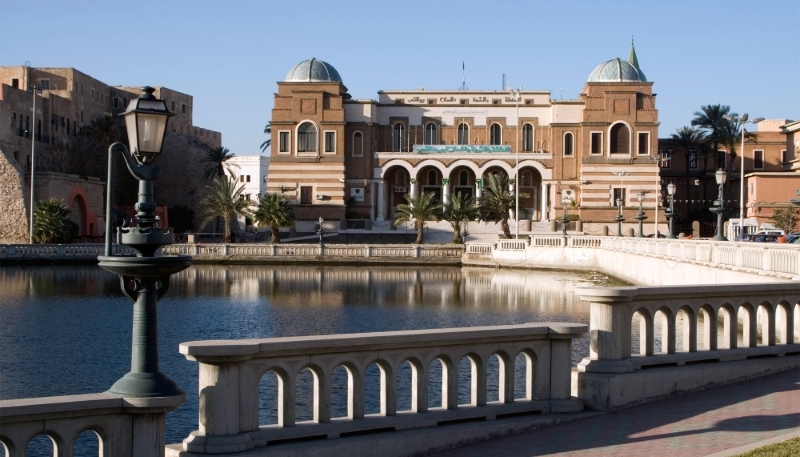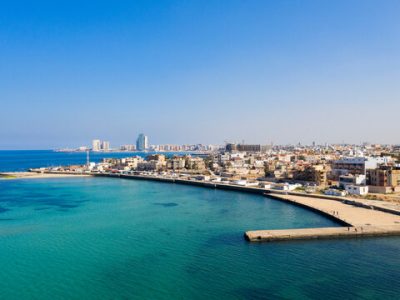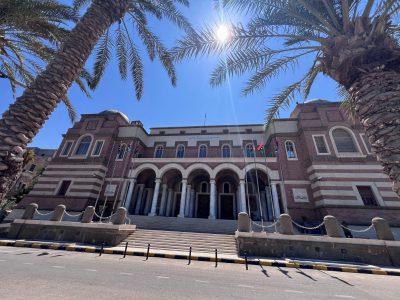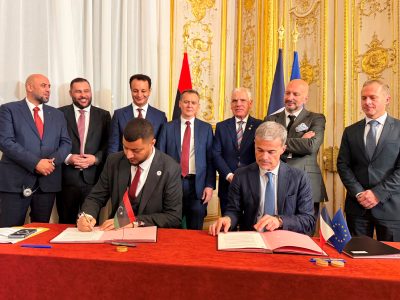Libya Central Bank Cash Crunch: Printing New Dinars to Ease Liquidity Strain
Tripoli’s Central Bank, like others across Libya, is racing to ease a long-standing cash crunch. In mid-October the central bank announced it had authorized the printing of 60 billion Libyan dinars (about $11 billion) in new banknotes to relieve chronic liquidity shortages. About 25 billion dinars of the new notes have already been distributed to banks, with 14 billion more due by year’s end and the balance to arrive in 2026. The bank also revealed it withdrew roughly 47 billion dinars of old notes to maintain the strength of the Libyan dinar, noting that about 10 billion of those bills had been not issued by the Central Bank and unknown to it. These steps reflect years of cash shortages: Libya may be oil-rich, but its people have often had to queue outside banks for cash.
Oil Bonanza Brings Revenue, Investment Hopes
Despite the cash crunch, Libya’s oil sector is booming. Stable or rising output and high prices have driven record revenues into the treasury. Libya’s central bank reports that oil revenue hit 79.4 billion dinars ($14.65 billion) in the first nine months of 2025. (Oil still accounts for over 95% of state income.) The Arab Monetary Fund and others now forecast double-digit GDP growth this year. International energy firms are tentatively returning: for example, Italy’s Eni has resumed offshore drilling this month after a five-year hiatus.
NOC statements note that Eni and BP even restarted onshore exploration in 2024, indicating growing confidence in Libya’s security and market. The promise of oil money has underpinned plans for rebuilding roads, ports and industry, and has drawn foreign firms to meetings and investment forums with Tripoli’s government. Still, analysts caution that translating oil money into jobs and recovery will require stable politics and banking reforms.
Political Divisions Stall National Reform
At the same time, Libya’s politics remain fragmented, hampering economic policy. In eastern and western cities alike, residents cast ballots this month in resumed local council elections – a process hailed by UN officials as restoring legitimacy to local institutions. Prime Minister Abdulhamid Dbeibah insisted that Libya should press ahead toward national elections rather than extend another interim stage (arguing that “the same ballot box [and] the same voter” could also elect a parliament and president).
Still, rival governments persist: the UN envoy and even the U.S. representative at the Security Council have stressed that a unified national government is essential for Libya’s recovery. The U.S. envoy on Oct. 14 urged establishing “a single government capable of extending its authority throughout the country, imposing security, and opening the doors to economic opportunities,” while also calling for support to strengthen institutions like the central bank and national oil company. For now, budget and banking powers remain split: for example, the east-based parliament set up its own multi-year development fund this year, but it is unclear if Tripoli’s central bank will finance it. Such divisions mean that even with high oil income, it is difficult to run a unified budget or a coherent monetary policy.
Outlook – Opportunity amid Uncertainty
Libya stands at a crossroads. On one hand, soaring oil receipts and fresh foreign interest offer a chance to end years of economic malaise. Paris and Tripoli’s recent agreements – from energy deals with U.S. firms to trade pacts with Turkey and Italy – reflect willingness to invest in Libya’s recovery. On the other hand, unless the country settles its political disputes, these advances may not stick. Analysts note that printing more dinars will ease immediate shortages, but sustaining growth depends on long-term stability and confidence.
External partners and Libyan citizens alike are watching whether reforms deepen or old rivalries reemerge. A credible path forward would see Libya’s oil boom finance job creation, infrastructure and service improvements under a unified government. But so far, progress is uneven: local polls are moving ahead, yet national elections remain stalled. Investors and locals must decide if the recent momentum can be built into a broader turnaround, or if entrenched divisions will once again frustrate Libya’s full economic potential.




